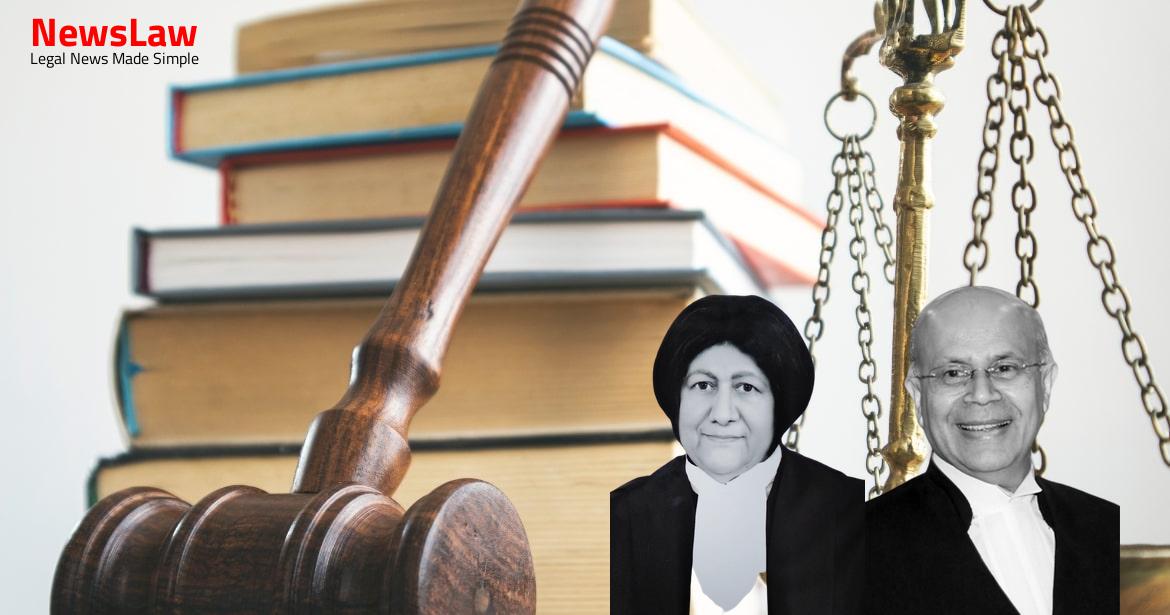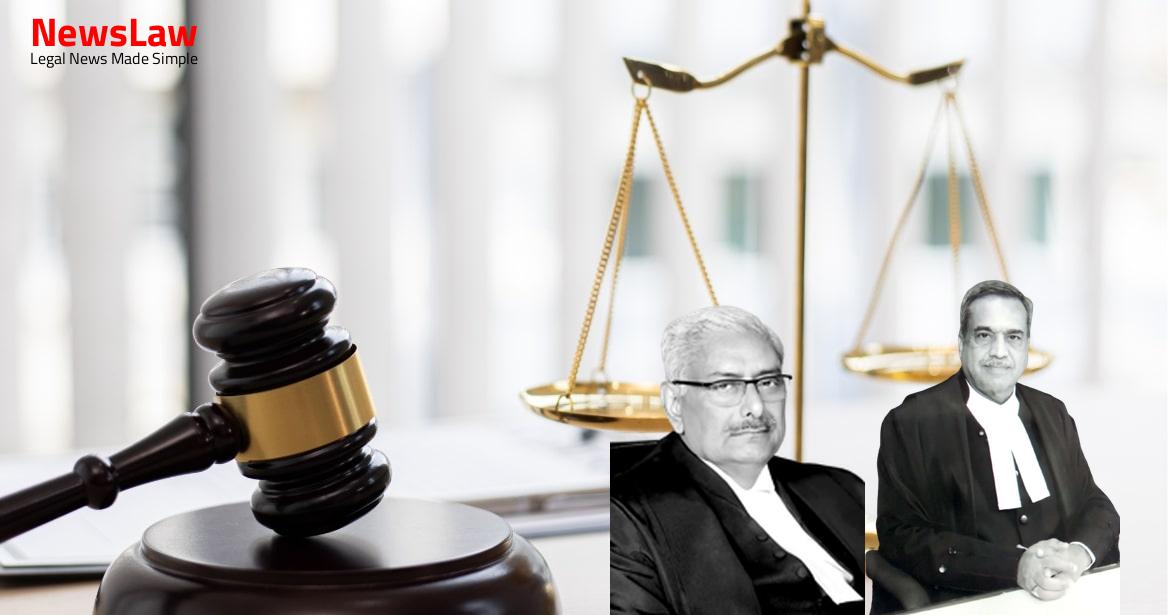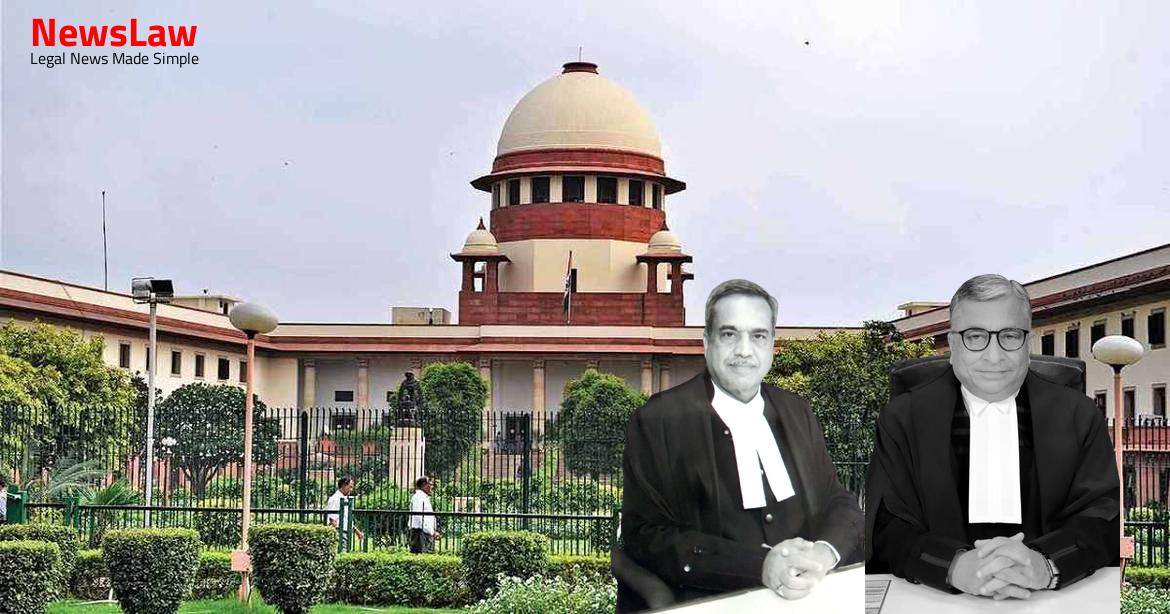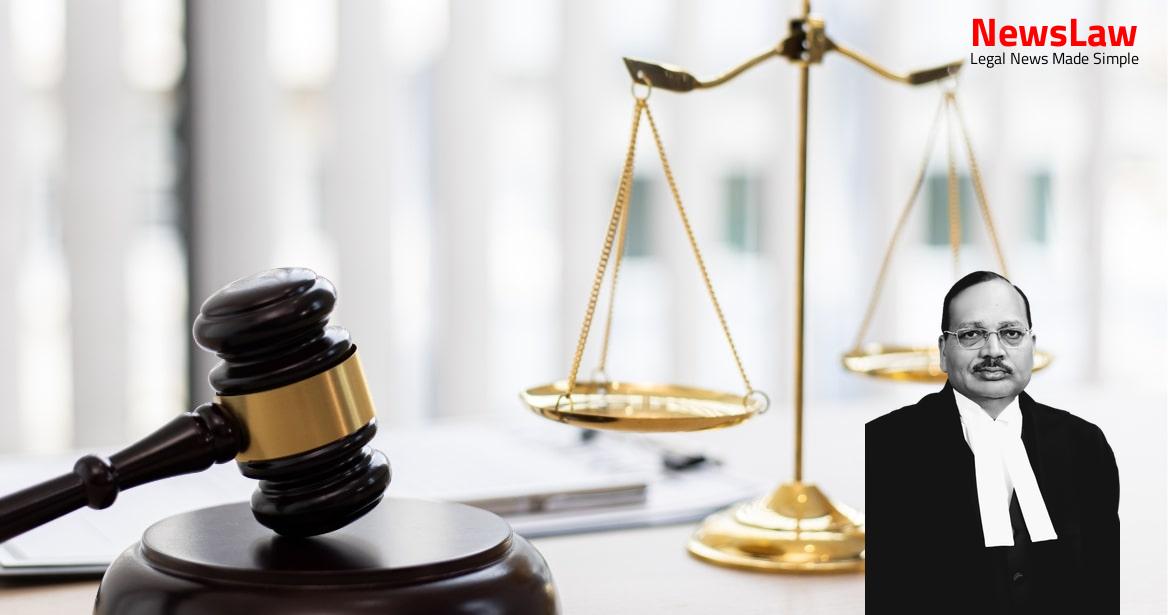Explore the intricate legal analysis of a case revolving around the debate on conducting a load test for a flyover, as per the High Court’s directive. Expert opinions and court rulings play a crucial role in determining the path forward in ensuring the structural integrity and safety of the infrastructure.
Facts
- A load test as specified in IRC 112:2011 was not proposed by IIT Chennai.
- A Writ Petition was filed by Respondent No.1 in the Kerala High Court against the G.O.
- After one year of use, the Consultancy Agency for the Ministry of Road Transport and Highways reported that the flyover was in a distressed condition with several cracks, recommending rehabilitation measures.
- The flyover was constructed by Respondent No.1 and inaugurated on 12.10.2016.
- The Committee reviewed IIT reports and the Sreedharan report, concluding that the tests carried out by IIT Chennai were in line with IS codes and IRC recommendations.
- IIT, Madras recommended a carbon fibre fabric composite treatment for repair instead of demolition.
- Dr. E. Sreedharan recommended demolition and reconstruction of the bridge for durability in his report to the Chief Minister of Kerala on 03.07.2019.
- The findings of IIT Chennai were accepted and relied upon due to its premier and reputed status.
- Experts involved in the assessment included engineers and a Senior Structural Engineer of the PWD.
- Dr. E. Sreedharan proposed a construction plan with a 100-year service life for the flyover.
- A High Level Committee consisting of five members was set up by the State Government to address differing opinions.
- The Committee noted that certain girders exceeded crack width limits, affecting load test compliance.
- IIT recommended a load test after strengthening the flyover, but did not mention the post-strengthening service life.
- RBDCK will hand over the bridge site to DMRC free of encumbrances and pursue compensation from the contractor.
- The Finance Department will allocate funds based on a detailed estimate for the rehabilitation work.
- The Committee emphasized extensive strengthening needs for the Palarivattom flyover based on IIT Chennai findings.
- The State Government accepted the Committee’s recommendations and the offer from DMRC for rehabilitation.
- The Kerala High Court considered the original tender terms and various reports, including allegations of corruption.
- A vigilance enquiry revealed numerous cracks in the girders and pier caps of the flyover.
- Dr. E. Sreedharan’s proposal for demolishing and replacing the superstructure was more expensive than the IIT strengthening scheme.
Also Read: Legal Analysis on Physical Ability in Rape Case
Analysis
- The contractor and consultant believe a load test is necessary to determine if the structure needs to be demolished.
- Government authorities are against a load test and prefer demolishing based on existing cracks.
- The contract mandates a load test to ensure the bridge’s strength.
- The petitioner must bear the cost of the load test.
- The process should be completed within three months.
- An Expert Committee supported the government’s decision based on expert opinions.
- The High Court suggested conducting a load test before demolition to avoid further controversy.
- The High Court decision focused on the need for a load test rather than judicial review for possible violation of Article 14.
- The High Court advised the government to consider the load test results before finalizing demolition plans to protect stakeholders’ rights.
- The Government shall conduct a load test of the Palarivattom flyover.
- The test shall be conducted through an approved qualified agency with the capability to conduct such a test.
- Notice of the test shall be given to all stakeholders involved.
Also Read: Analysis of Transfer of Winding Up Proceedings to NCLT
Decision
- The judgment of the High Court has been set aside, along with the review judgment.
- The appeals have been allowed as per the mentioned terms.
- Pending Writ Petitions in the High Court should be disposed of within six months from today.
- The aforementioned directions have been issued as a result.
Also Read: Judicial Discretion in Contractual Interpretation
Case Title: STATE OF KERALA AND ANR. ETC. ETC. Vs. M/S RDS PROJECT LIMITED AND ORS. ETC. ETC. (2020 INSC 559)
Case Number: C.A. No.-003239-003246 / 2020



